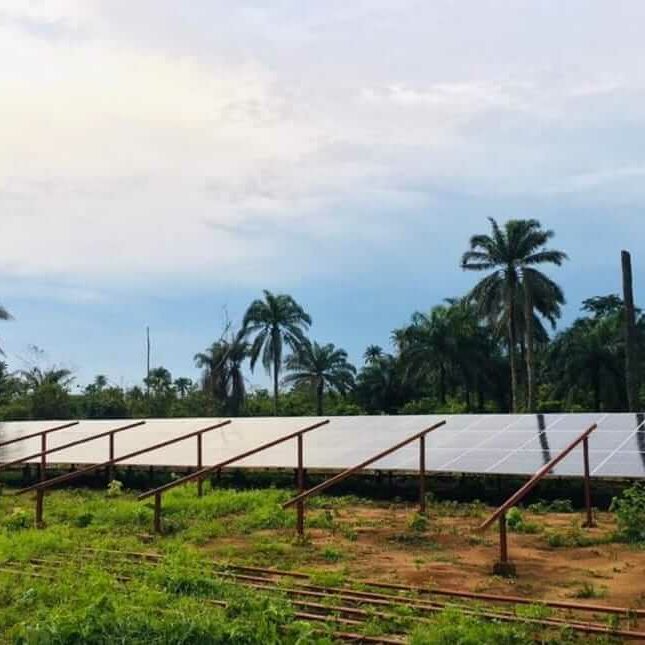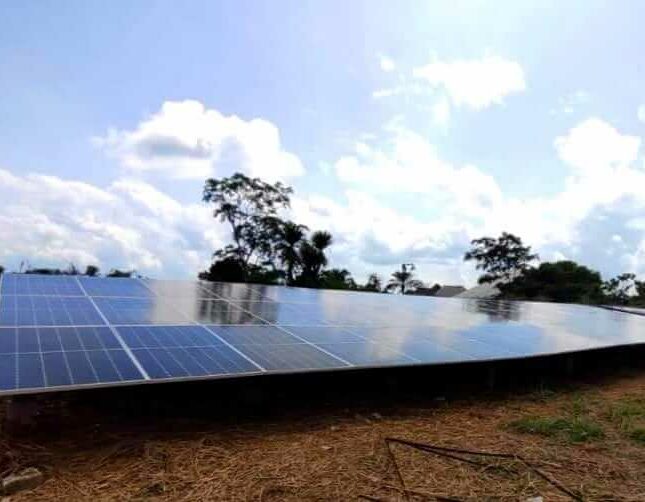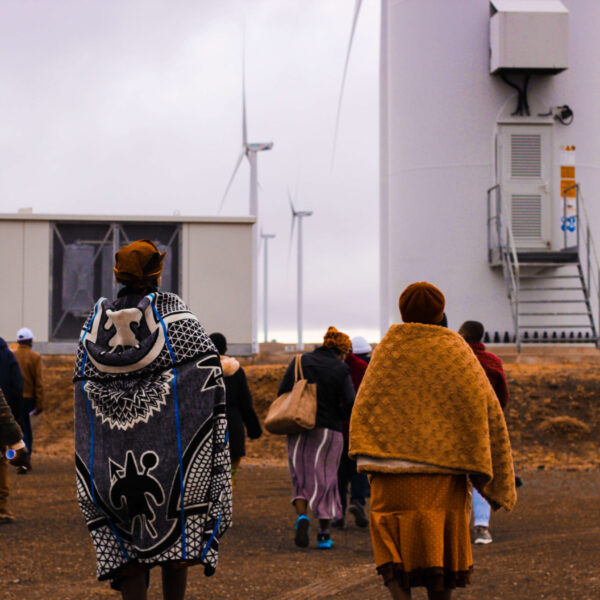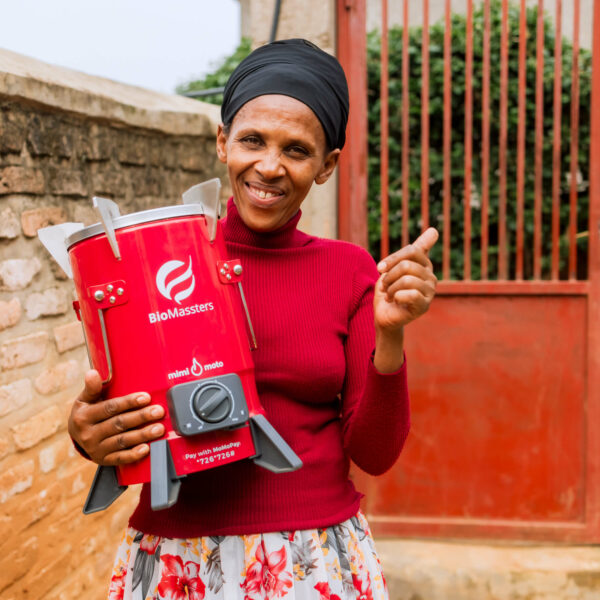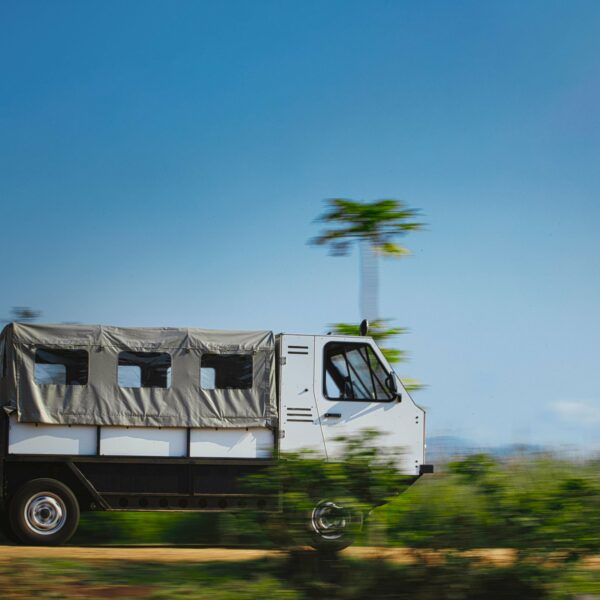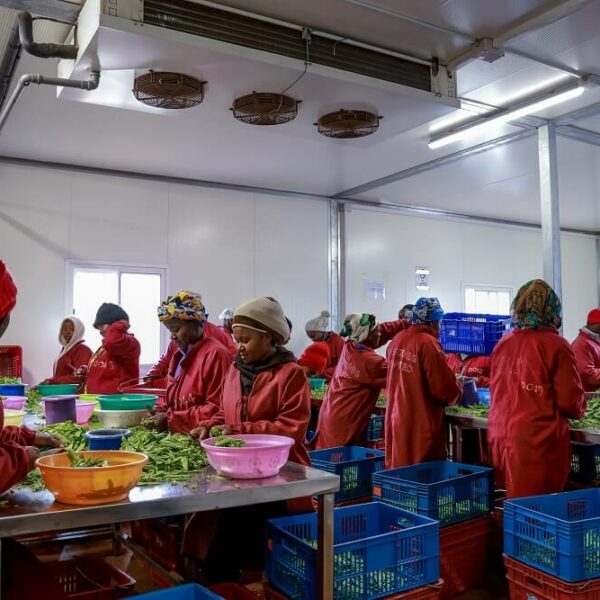Solar mini-grids get a boost from local currency finance
Key figures
Expected results
Solar mini-grids get a boost from local currency finance
About
The Nigerian company Darway Coast is in the business of bringing solar power to remote communities around the country’s Southern Region. Their mini-grids meet a demand from small remote rural communities that is, in aggregate, very large. In many thousands of isolated villages, people have no access to electricity unless they can afford to run personal diesel generators, and they are keen to access the high-quality energy generated and distributed through local mini-grids. The electricity cost will be substantially lower than a generator, and the emissions reductions benefit the whole world’s climate change mitigation goals.
Local developers like Darway Coast are the ones to deliver it. They are the best placed to go to communities and identify the power needs of households, shops, schools and clinics; get permits and customer agreements; and mobilise local contractors to build economically. Recognising this, the World Bank and the Nigerian government, represented by the Rural Electrification Agency, are backing the model with performance-based grants that support developers with the equivalent of €600 per connection realised. The programme is part of Nigeria’s push to achieve universal electrification by 2030 while also targeting net zero emissions by 2060. In the government’s assessment, this means that stand-alone solar power needs to reach more than 10,000 unserved communities.
Darway Coast has deployed four mini-grids so far and is preparing for many more. But there is a missing link to get there: more sponsor equity and substantial local currency term finance. In a challenging country like Nigeria with high risk of currency fluctuations, raising term funding for small infrastructure projects like mini-grids is not easy. Because mini-grid developers receive payments from users in Nigerian naira, they need to borrow naira too so they can repay confidently over the long term. Local commercial banks’ willingness to offer term funding for mini-grids, an innovative development in the market, is low, and Nigerian institutional investors deploy less than 1% of their local currency assets as domestic credit to private infrastructure projects. Senior debt finance is typically conditional on an equity contribution of at least 30% of the capital expenditure.
Our support
A GET.invest Finance Catalyst advisor met Darway Coast at a Solarplaza conference in Lagos in 2019, and has been in frequent contact ever since. The advisor helped craft a comprehensive business case to share with financiers, contributing to the idea of structuring the next stage of investment as three ringfenced portfolios under three special purpose vehicles (SPVs). The advisor reviewed the financial model in terms of its inputs, outputs and basic assumptions, helped with presentations of the business case to financiers and investors, and acted as the developer’s sparring partner.
The final approach was directed by the prospect of local currency finance. The GET.invest Finance Catalyst made introductions with two potential sources: InfraCredit, a guarantee fund; and the Nigeria Infrastructure Debt Fund (NIDF). These were Nigerian financiers, established with the support and involvement of international development finance institutions, that could offer, structure and raise debt in naira and understood the local circumstances and power needs around the country. Darway Coast closed on the first two SPVs in 2022, securing with InfraCredit guarantee support capital markets funding equivalent to €3.5 million for a portfolio of six mini-grids, and from NIDF the equivalent of €2.18 million in senior debt for the construction of three mini-grids.
Notably, the close with InfraCredit was achieved through a blended instrument, with the UK-funded Climate Finance Blending Facility enabling local currency financing for the project by investing in the subordinated debt tranche. This first loss of capital helped de-risk and reduce the capital cost of the project. As the portfolio meets the Climate Bonds Standard Solar Sector Criteria and received certification from the Climate Bonds Initiative, Darway Coast can boast of the first green-certified naira loan for an off-grid solar project.
The Finance Catalyst advisory support has also been instrumental in raising a corporate €650,000 medium-term facility from the SIMA Energy Access Relief Fund for Darway Coast’s mini-grid development, contributing to their equity investments in the mini-grid portfolio SPVs.
The outcome
Darway Coast is now moving quickly on the two portfolios: they are able to build a mini-grid in just a few months and work in multiple villages at once through local contractors. As the performance-based grants come in, they can allocate these to develop new projects. Once each mini-grid is up and running, Darway Coast monitors it remotely and collects the energy payments through local agents selling tokens for smart meters.
With this early investment secured, the mini-grid system is ideally suited to organic growth as more users connect. With the need for power everywhere, a mini-grid stirs up a lot of attention and activity in the area. Shops, barbers and tailors serve as anchor users, while other productive services such as mechanised grain milling and drying become possible and are good options for follow-on investment.
Now, GET.invest is assisting Darway Coast in raising finance for their third portfolio, which will grow the number of mini-grids established under these SPVs to 30. The first two investments have led the way, and have already set a new standard in Nigeria: developers really can bring renewable energy to every corner of the country, powered by Nigeria’s own green capital.
Disclaimer: This story was last updated in July 2023.



